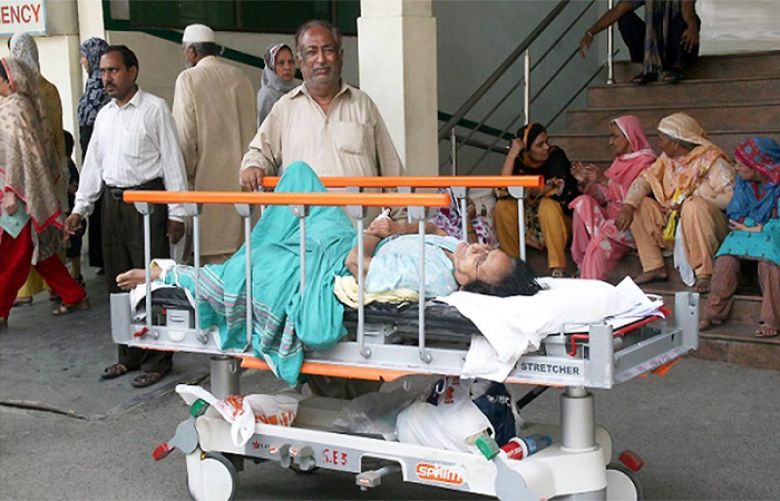Though Pakistan has shown improvement in the health sector the last 18 years, it needs to do a lot more as the country is far behind in the region and across the globe, a World Health Organisation (WHO) report launched on Tuesday says.
The report titled Sustainable Development Goals (SDG) 3: Localisation in Pakistan, which was compiled in collaboration with the National Health Services (NHS), says the maternal mortality rate in the country was 290 per 100,000 live births in the year 2000 which has dropped to 160.
However, the SDGs require it to be reduced to less than 70 per 100,000 live births by 2030.
Skilled birth attendance was 23pc in 2000 and is currently at 69pc but the SDGs require them to be over 95pc by 2030. The under-five mortality rate was 112 per 1,000 live births in the year 2000 and is currently at 75 but has to be reduced to less than 25.
Incidents of tuberculosis were 275 per 100,000 people in 2000 and are currently at 269 but have to be reduced to 54 by 2030.
The probability of dying from cardiovascular disease, cancer, diabetes and chronic respiratory disease between the ages of 30 and 70 was 24.8pc in 2000 and is currently at 24.7pc but has to be reduced to 17pc by 2030.
Parliamentary Secretary of NHS MNA Dr Nausheen Hamid said Pakistan had made a sub-optimal progress towards achieving the Millennium Development Goals (MDGs)and now the SDGs.
She said the NHS ministry considered the SDGs the national goals of Pakistan and was committed to achieving SDG-3 through its localisation and integration with the country’s health strategies and plans at the national and provincial levels.
The first step towards attaining SDG-3 in Pakistan starts with understanding the ground realities today, she said.
“The health indicators are not up to the desired level and we all need to work very hard to achieve SDG-3 through the universal health coverage. The ministry has completed the process of localisation of health related SDG indicators in consultation with all relevant stakeholders and partners both at the national and provincial levels,” she said.
“The ministry seeks close cooperation with line ministries to monitor progress in SDG-3 indicator. We especially request the Pakistan Bureau of Statistics to work in collaboration with the ministry on data sharing and analysis,” Dr Hamid said.
NHS Director General Dr Asad Hafeez said that by adhering to the SDG Agenda 2030, the country aimed to bring about transformational change in 17 domains covering multiple sectors to improve the lives of the citizens of Pakistan and contribute towards the betterment of all humanity.
He said SDG-3 is aimed and ensuring healthy lives and promoting the well being of all at all ages and that it is the pivot that will drive the SDG agenda in Pakistan due to its centrality to human development.
Dr Hafeez said it is a notable achievement for Pakistan that it is one of the first countries to complete the localization process which is a fundamental first step towards achieving SDGs by 2030.
Head of WHO Pakistan Dr Ni’ma Abid Saeed appreciated the political commitment of the government.
“WHO defines health as a state of complete physical, mental and social well being and not merely the absence of disease or infirmity,” he said.
He added that monitoring health trends and strengthening health information systems are among the core functions of WHO and for which the organisation is committed to work closely with the Pakistani government.
WHO is committed to support all stakeholders for SDG-3 implementation and forth coming voluntary national review, he said.

